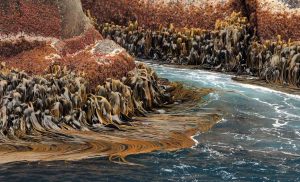Attend 2-3 week not-for-credit training workshops designed to deepen skills in a specialized marine science field. Training workshop topics vary from one summer to the next, and are led by active and passionate scientists in their respective fields. Participants end training workshops with newfound skills, reinforced by the experiential and hands-on nature of these programs. FHL’s training workshops are targeted primarily toward individuals in graduate school and beyond in their careers.

Summer 2026 training workshops
July 19 – August 8
Costs
The base cost for a 3-week training workshop is $4,500 + tax per student. This cost includes scientific equipment, on campus room and board, and staff and facility fees. Need-based FHL scholarships are available for all workshops. Consult individual training workshop descriptions for additional aid details.
Apply
Click Here To Apply to a Summer 2026 Training Workshop
Prepare the following materials ahead of time:
- Statement of Purpose indicating your (1) interest in the chosen training workshop, (2) how the workshop will influence your career path, and (3) what aspects of the workshop you are most interested in
- CV
- Name and contact information for one reference
- Transcript if applicant is an undergraduate or not yet in graduate school
Additional application materials may be required by specific training workshops. Use the buttons to specific workshops above for more details.
Workshop applications will open Friday December 19, 2025.
NEW: Priority applications are due March 16, 2026.
NEW: Applications submitted after March 16 will be accepted on a rolling basis as space allows.
NEW: Applications will close completely June 15, 2026.
Visas
If you are applying to a workshop internationally, expect to get started on the visa process as soon as you are accepted. Most participants will qualify for a visa waiver or B-visa, some of which can take 3-5 months to process.
The University of Washington cannot assist workshop participants with visas, however, the FHL Academic Services Manager will likely be able to help provide documentation of workshop admission. Reach out to fhlstudents@uw.edu with questions.
Training Workshop Archive 2025 – Present
For more opportunities at FHL, see also Summer 2025 course offerings for summer A and B terms.
